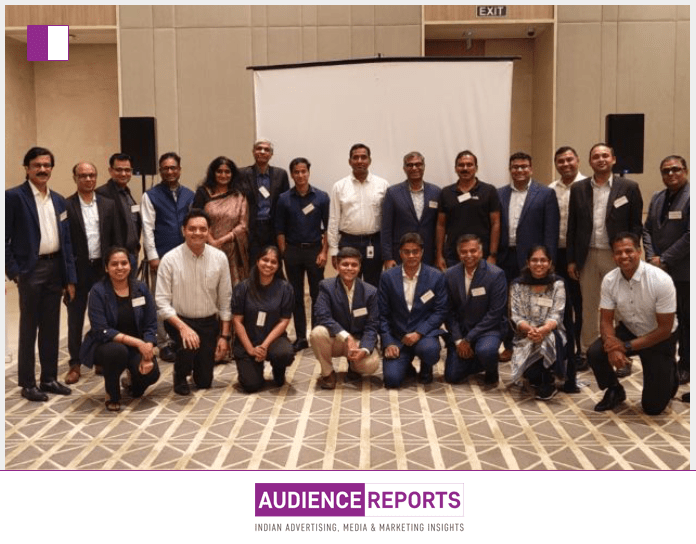Dr. Sushmitha Sundar is not just a name in the scientific and technological ecosystem of Hyderabad she represents the convergence of deep expertise in life sciences and a forward-thinking vision for the role of artificial intelligence (AI) in healthcare. As the Head of Life Sciences at the Research and Innovation Circle of Hyderabad (RICH), Dr. Sushmitha Sundar is shaping impactful conversations, catalyzing innovation, and bridging gaps between public health needs and cutting-edge technological solutions.
Dr. Sushmitha Sundar recently contributed her insights and experience to a roundtable hosted on March 26, 2025, titled “AI adoption Journeys in Healthcare and Life Sciences”. The event was organized by NASSCOM AI in collaboration with Evernorth Health Services and brought together a handpicked group of domain experts in AI, life sciences, and healthcare. This high-impact conversation was moderated by some of the sharpest minds in the field, but what stood out was Dr. Sushmitha Sundar’s ability to elevate the dialogue beyond technical jargon to focus on societal relevance.
At the core of Dr. Sushmitha Sundar’s message was the importance of collaboration between technologists, clinicians, data scientists, and policymakers. She stressed that without such intersections, the true potential of AI would remain locked away in research papers and pilot projects. According to Dr. Sushmitha Sundar, innovation must serve real people in real-world settings, and it starts by acknowledging and addressing the current blind spots in healthcare AI.
One of the most powerful moments from her talk was her focus on two often-neglected areas of AI application Public Health and Preventive Health. These sectors, as Dr. Sushmitha Sundar points out, are critical to achieving equitable health outcomes across diverse populations. She underlined how digitization at the grassroots level where health inequities are most prominent must be prioritized. Without this focus, the data that AI systems rely on will never reflect the realities of underserved communities.
Dr. Sushmitha Sundar’s argument wasn’t just about technology it was about social responsibility. In her words, preventive health should be a personal and societal imperative, not just a futuristic aspiration. Longevity AI and Employee Wellness AI are examples she shared to highlight how data-driven approaches can create long-term, meaningful improvements in health and wellbeing.
The roundtable also tackled a series of critical and often controversial questions. What is ethical AI in healthcare? How do we ensure that AI doesn’t just automate but truly augments human decision-making? When AI fails, who is accountable? How do we validate its models? In discussing these issues, Dr. Sushmitha Sundar didn’t offer oversimplified answers. Instead, she welcomed the complexity, inviting ongoing dialogue and active participation from all stakeholders.
What makes Dr. Sushmitha Sundar stand out is not merely her technical proficiency but her systems-level thinking. She sees AI not as a siloed technology but as part of a broader innovation ecosystem one that must include ethics, governance, community engagement, and above all, human-centered design. Her leadership at RICH is rooted in this integrative approach. Under her guidance, the organization doesn’t just aim to foster research, but to ensure that such research translates into tangible public value.
Dr. Sushmitha Sundar emphasized that AI in healthcare is not just about clinical or hospital-based innovations. It is also about how we prevent disease, promote wellness, and enable people to live longer, healthier lives before they even step into a hospital. Her advocacy for digitizing public health infrastructure is especially timely and urgent in a post-pandemic world that has laid bare the fragility of our current systems.
What sets Dr. Sushmitha Sundar apart is her relentless commitment to inclusion. By advocating for the digital transformation of underserved health sectors, she makes the case that innovation cannot be limited to urban, tech-enabled clusters. The health of a nation, she argues, depends on how well we care for the most marginalized.
Through her work and words, Dr. Sushmitha Sundar is pushing the AI conversation from theoretical frameworks to actionable strategies. She is helping institutions, businesses, and policymakers see the bigger picture one where AI is not an end, but a means to elevate human wellbeing, equity, and dignity.
Her presence at the roundtable was not just as a speaker, but as a convener of ideas, a listener of varied perspectives, and a catalyst for future collaborations. True to her role at RICH, Dr. Sushmitha Sundar brings together science, policy, and purpose with rare clarity.
As the global health landscape continues to evolve, voices like Dr. Sushmitha Sundar’s are essential. She is not just navigating the future of AI and life sciences she is helping define it. By putting preventive and public health at the center of the innovation agenda, she is charting a course that prioritizes people over technology, outcomes over output, and sustainability over speed.
In every discussion she joins, every initiative she leads, and every policy she influences, Dr. Sushmitha Sundar remains focused on one thing: impact. And that makes all the difference.




































